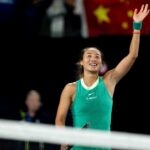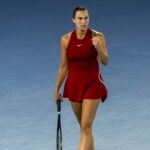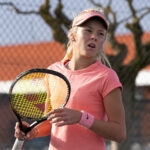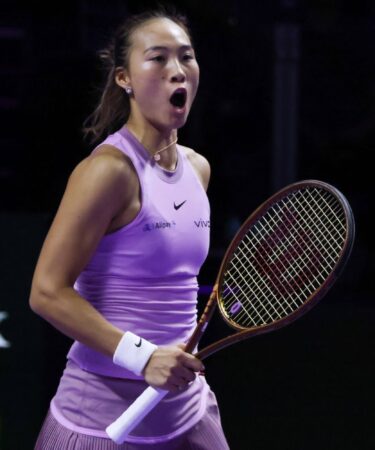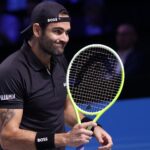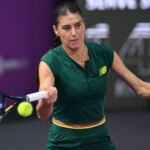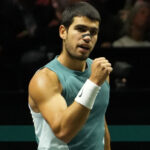“At 12 years old, you already saw she was a winner” – Kévin Boumlil, Zheng’s former trainer
Tennis Majors sat down with Kévin Boumlil, former trainer of Australian Open finalist Zheng Qinwen.
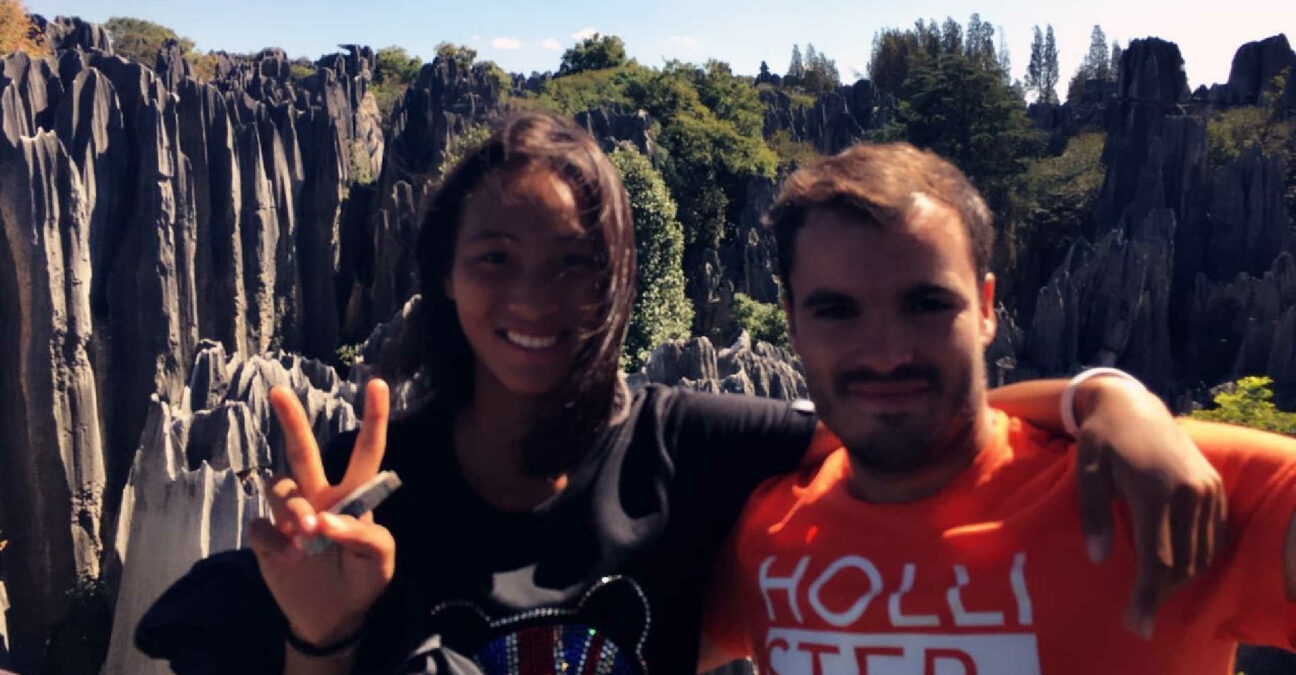 Qiwen Zheng and Kevin Boumiil | © Rights Reserved
Qiwen Zheng and Kevin Boumiil | © Rights Reserved
French coach Kevin Boumlil, close to Carlos Rodriguez, the legendary coach of Justine Hénin, trained the Chinese Zheng Qinwen before she began her career on the junior and WTA circuits. Now a trainer at Justine Hénin’s academy after a year and a half of experience with Ksenia Efremova, Boumlil, who coaches Belarusian Maria Kolas (2009 generation), traces the journey of a born winner.
When did you train Zheng Qinwen?
Kévin Boumlil: I had her from the age of 11 until she was 16, in Beijing, at the Academy where I worked, called Potter’s Wheel. It is the academy of Carlos Rodriguez, the former coach of Justine Henin and Li Na. During that time, Li Na ended her career. In fact, when my partnership with her ended, Carlos asked me if I want to stay in China or return to France, because my training contract at the academy was ending.
How long were you training her, and how old were you?
Kévin Boumlil: For two years, and I was 25 when it ended. I had two options at that time. Either I go home to France and take the DE (state diploma) and coach, or I do tournaments because originally I went to China to earn some money for practice and to come back and play Futures. Or I could learn to be a coach with Carlos as a mentor. The plan was to send an invitation to the 10 best Chinese girls to come and stay at the Academy for the year and he would teach me at the same time how to train a player as he had done with Justine (Henin).
So we sent the invitation to all these players, three responded and Qinwen Zheng agreed to settle in Beijing. She comes from Shiyan, in the province of Hubei, where Li Na also comes from. She does a week of training and Carlos tells her: “If you want to come, we’ll give you a scholarship to the academy, you train for almost nothing and we’ll take care of you so that you become a professional.”
That’s when I started working with her, in collaboration with Carlos who trained me and gave me advice.
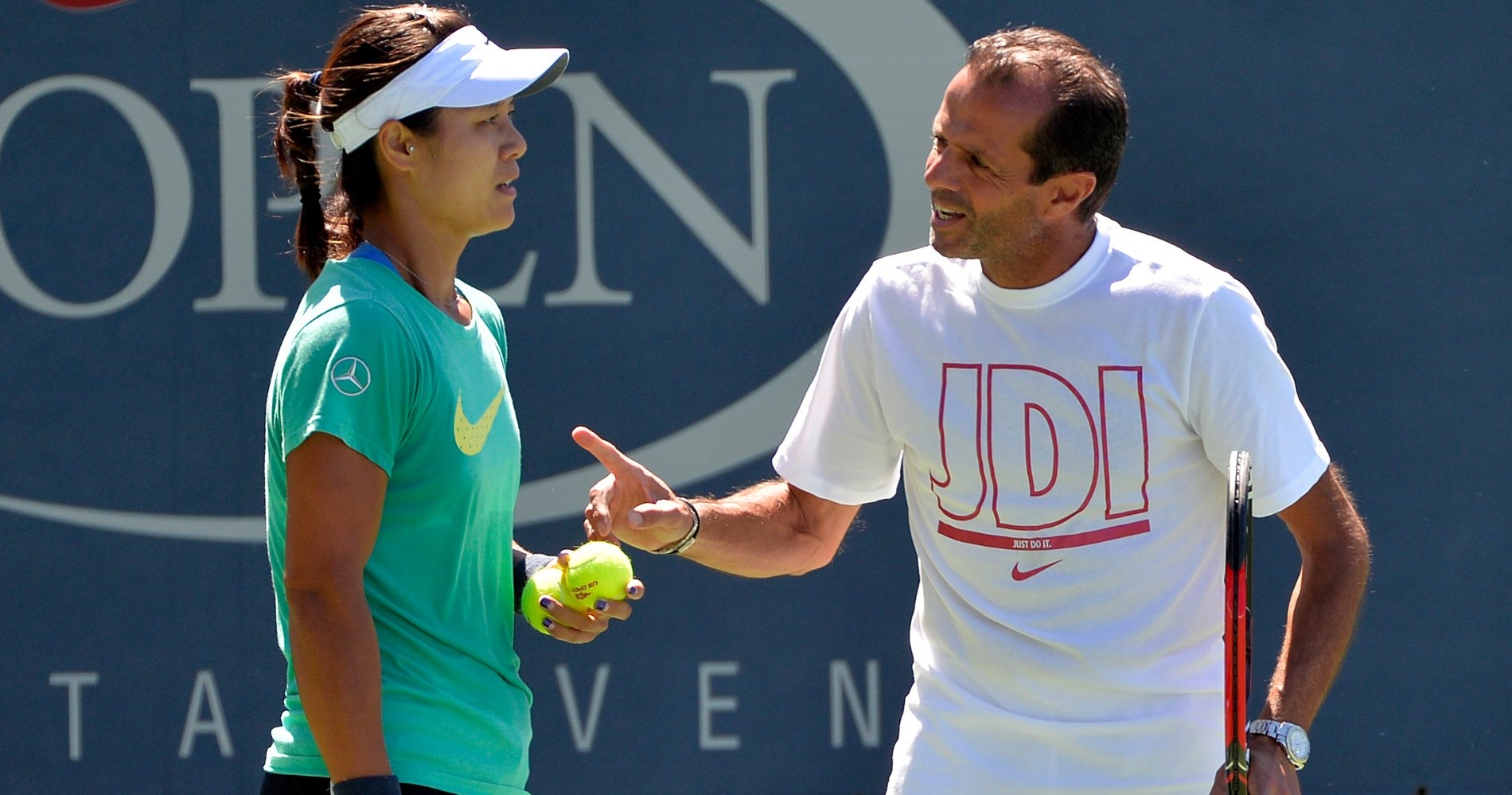
Before you tell us the story, how did things end with Zheng?
Kévin Boumlil: It stopped when she became one of the top 10 juniors in the world. At that time, actually, China wasn’t really the right environment for her to evolve. So her parents decided to go abroad, the plan was to grow in Europe or the United States.
I had to choose, either I followed her in the private sector, or I stayed at the academy. Because they preferred to go abroad so that she could flourish and give herself more chances to succeed, I decided to stay at the academy, with Carlos.
when you see a player who is capable of making 10 cross shots with quality and without making a move, you say to yourself that this girl or this boy has something.
Kévin Boumlil
Today, I imagine that what you see her doing doesn't surprise you? Or maybe so? In any case, what you see her doing on the circuit, does it correspond with what you had in mind? Do you watch all her matches, does she impress you? How would you describe the evolution of his career?
Kévin Boumlil: Yes, it was something you saw when she was young. We said to ourselves: “If she has no physical problems, if she doesn’t explode mentally and if she manages to be rigorous in what she does and if she works hard, she will be in the top 20, easily.”
At 12 years old, it showed. It’s a bit like Ksenia (Efremova), when you see a player who is capable of making 10 cross shots with quality and without making a mistake, you say to yourself that this girl or this boy has something. It’s very difficult to achieve things like that at that age.
And she had this at the time of her tests with the academy?
Kévin Boumlil: No… At the time of the tests, she was a little “crazy”, but she hit the ball very, very well. You could see, with the intensity in her shots, that she was really focused only on tennis. You could see that tennis was really what she wanted to do.
The first week, when she arrived, you could tell she was enjoying it. But as soon as we played points, you saw the determination, the desire to win in her eyes. You could tell she was a winner. She is one of the players who does not like to lose and who is ready to do anything to win.
Then, we saw her evolve, with her ability to adapt. If you ask her something, she will succeed in doing it. And if she doesn’t make it, she’s going to go home and work until she does.
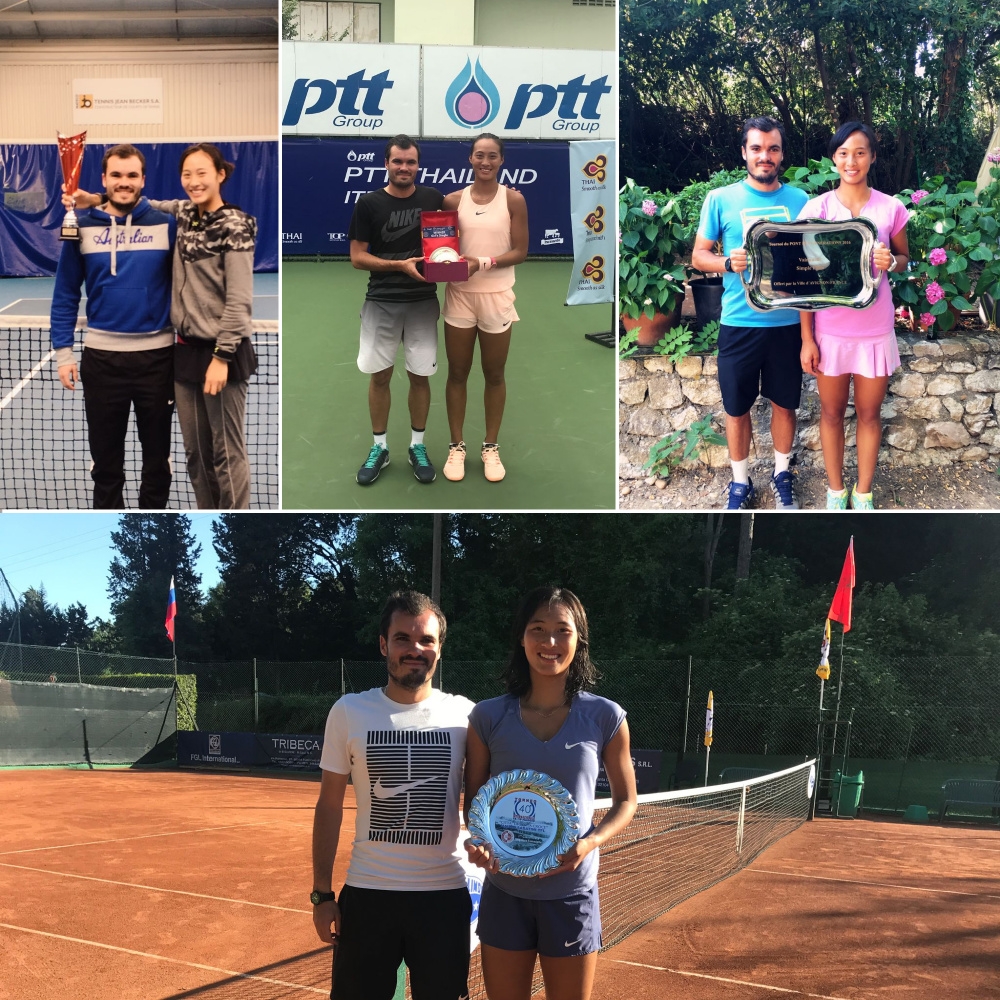
When she was 15, her technique, her tactics, her structure were really solidified. So from there, whatever she did next, she would have been top 60
To come back to her recent performance, in terms of the passage time, is what you see now exactly what you had in mind at the time with Carlos Rodriguez?
Kévin Boumlil: Yes, yes, we said to ourselves that this girl, even if we had done our job very poorly, she would still be top 60 no matter what! When she was 15, her technique, her tactics, her structure were really solidified. So from there, whatever she did next, she would have been top 60.
Her physical qualities, determination, mentality make her a special player. The fact that she’s not afraid of anyone, that she’s ready to play. Her passion is tennis. And her ability to adapt, the ability to question and manage to adapt her game to evolve.
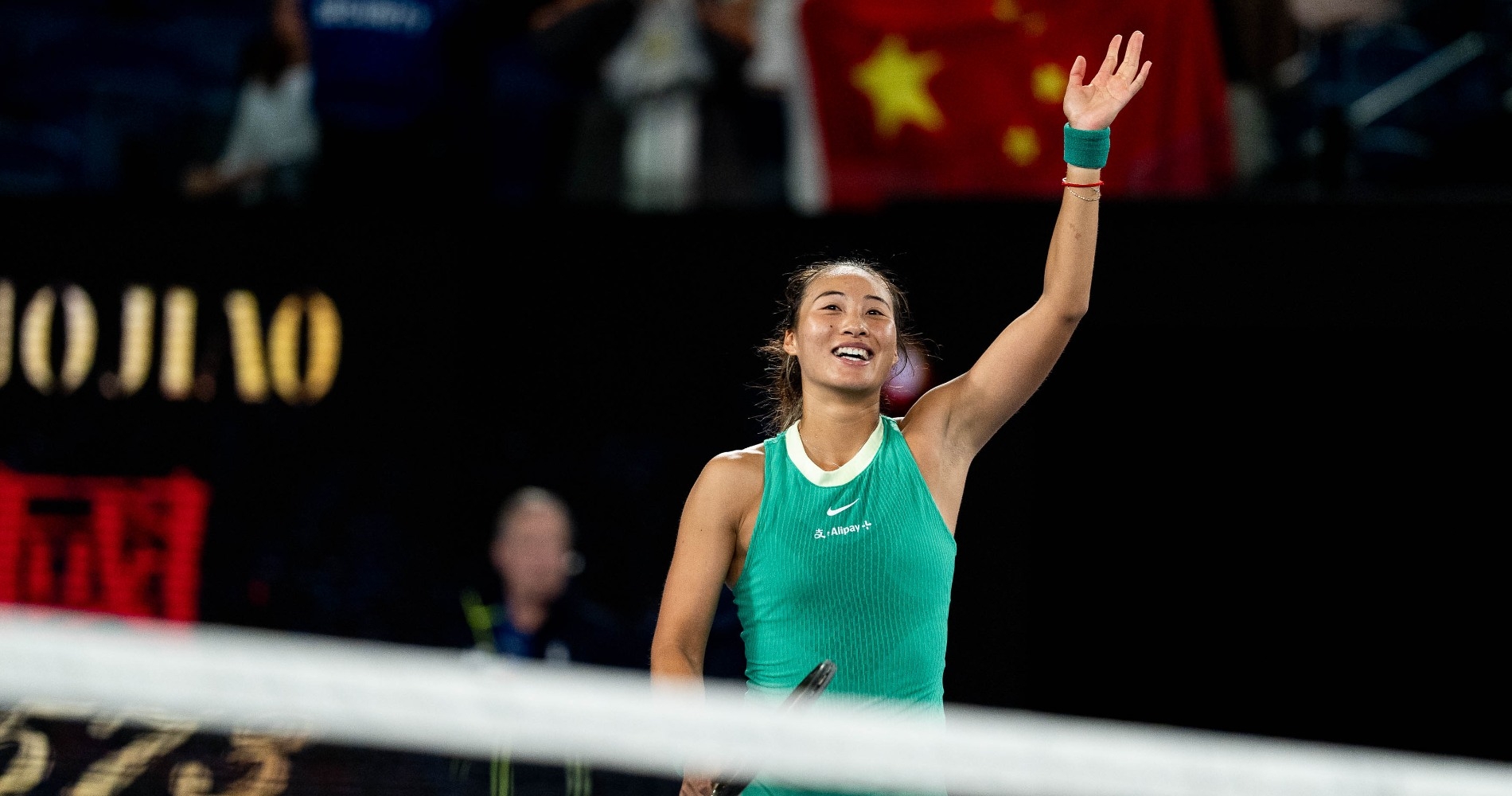
Between the ages of 11 and 16, what were the key moments for Zheng? The key steps? What was the plan and to what extent was that plan ideally adhered to? Were there any problems?
Kévin Boumlil: We took the time to develop it. For example, at 13, she only competed in Grade 3 under 14 tournaments. And at 14, she was doing Tennis Europe U14, and she only started the ITF around July – August. So we really took the time to put her game in place, to shape her.
First, it was about changing the technique. Her technique was a little weird, but you could see she could do everything. Technique, tactics, and mental structure. Daily rigour, in your routines, in your warm-ups, in your game plan. Eat well, sleep well, do things rigorously.
And she acquired that very quickly?
Kévin Boumlil: Yes, in China they have this specialty. When we ask for something, they will do it. That’s the good thing about them, they believe in it 100%.
How would you define her playing style?
Kévin Boumlil: Very aggressive. With a big serve and a big forehand. And whoever advances in the game, she goes there to win the points. Aggressive but still very confident in her strikes.
In less than 12 years, she was hitting balls with all her might. By age 14 she started holding the rally, and at ages 15-16 she found the sweet spot between hitting and holding the rally. Now, she is an aggressive player, but one who is also able to run, not make mistakes and change the rhythm.
she is very loyal. If she works with someone, she will stay with that person and trust them
When you see her playing, what separates her from the best players in the world?
Kévin Boumlil: I would say the experience, already, of playing matches in front of a big audience. Manage pressure and prepare for matches, prepare game plans. People will start to know her, they will have game plans against her. And for her part, she starts playing the same girls on the WTA circuit. So now that she knows them, she has to prepare well to play them.
She also needs to continue to improve physically. She is only 21 so she still has three years during which she can prepare physically and then last for ten years.
What is Zheng’s personality like?
Kévin Boumlil: She’s a shy person. She is also determined, funny, and knows how to laugh when you know her. She opens up a lot if you’re close to her. And she is very loyal. If she works with someone, she will stay with that person and trust them. And if the person gives to her, she will give back.
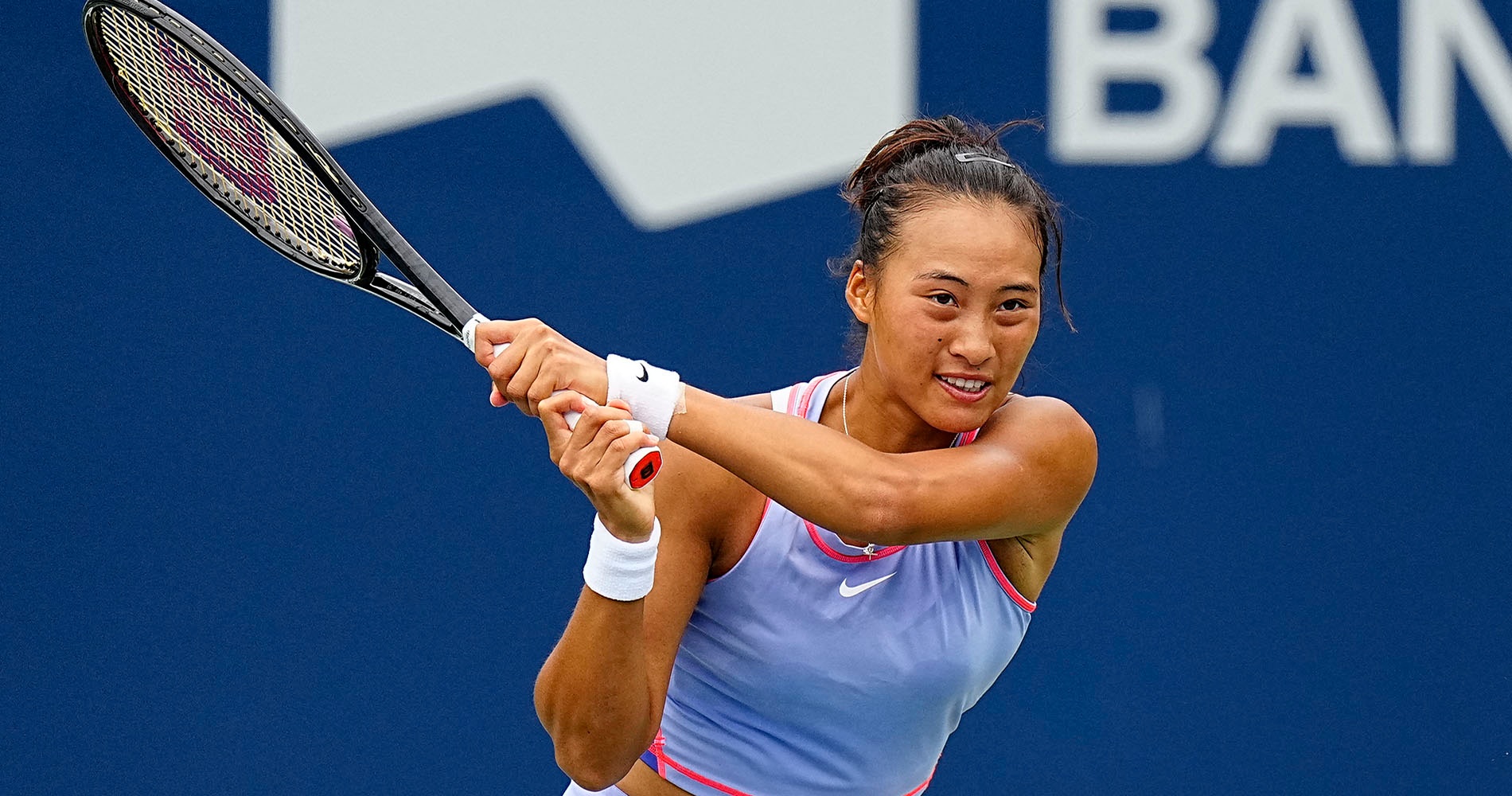
At 16, when she decided to move, you chosed to stay at the academy. If you had decided to remain her coach then, would you be her coach now?
Kévin Boumlil: If I had wanted, we could have gone private. But, it was complicated. For job security for me, and financially for them. The family knew she had to get out of China and play in Europe or the United States, but it doesn’t meant they could afford a personal coach. She was coached in several academies – IMG, Mouratoglou, in Spain… – but not with a personal coach. Now, since her breakthrough, she has a private coach (Pere Riba at the moment). If I continued with her, I didn’t know if it was going for a year, six months or 10 years. It also would have meant that I was leaving the academy, with the player, where Carlos had taught me everything for eight years, saying to him: “Thank you, now I’m leaving with the player we trained together.” I wouldn’t have found it good, not fair.
How was the training with you and Zheng?
Kévin Boumlil: During the morning class, Carlos was coaching (Zheng Qinwen) and I was the hitting partner. I was already doing the (training) programs. I sent the programs the week before. If there were things to change, Carlos would tell me, for example: “Mobility plan is good, but you’ve done two in a row, the sessions are a bit heavy, it’s better that you move some other way.” And so, in the morning, we did what we had established, and he led the exercises while I hit.
In the afternoon, it was me who took care of it. I led the session, training Qinwen (Zheng) with another player or hitting. Afterwards I went on tour with her. And when Carlos wasn’t there, or on vacation, I did the morning and afternoon workouts.
But as soon as Carlos was at the academy, he tried to do at least one session a day with me. In China, we ate between noon and two every day together so for two hours Carlos told us his anecdotes with Justine (Henin), Li Na, how we had to work this or that girl, how we had to train an 11-year-old player, what was important at 12 years old, at 14 years old, 16 years old…
And he only did that with you, or with lots of coaches from his academy?
Kévin Boumlil: He helped all the coaches a lot. But I spoke French and perhaps I had a slightly more special relationship with him. I was quite open, almost as if I had been a player. I trusted him 100%. Which is not easy when you are a coach. Because, sometimes, some coaches think they are right, want to do it their way and don’t really listen. He focused on the one who were loyal, and I said yes to everything.
I was young, I had never coached, whereas he had managed two players with Grand Slam titles. And when he spoke, his demonstrations were logical. And the proof that I did the right thing by trusting him is that Zheng is where she is now.
when I arrived in China I had this confidence in Carlos. And the way he helped me kept that trust
You often say that he taught you everything. To go into detail, when you arrive at his academy to become a coach, you are 23 years old, you play tennis at a very good level: what do you know and what you don't know about coaching? Would you say you were totally ignorant about this?
Kévin Boumlil: My uncle, Alain Barrère, had an academy in Avignon. He’s the one who taught me everything. He instilled in me rigour, structure and above all knowing how to listen to what the coach says. Then when I arrived at the academy in China, I was still a bit of a player in my head, because I had never passed the D.E. (state diploma). Having a person (Carlos Rodriguez) who teaches you how to coach is a bit like having a coach who teaches you how to play. When I saw it, I immediately listened to it, I had 100% confidence. For me, tennis is a family thing, because my uncle trained me. I kept this link between tennis and family. And as I trusted my uncle 100%, when I arrived in China I had this confidence in Carlos. And the way he helped me kept that trust, that’s why I stayed loyal until we both stopped.
By the way, how did you meet Carlos Rodriguez?
Kévin Boumlil: A sparring partner I knew spent a year with Li Na. I met him in a team match one summer in Montpellier, I had the same ranking as him (-15 in France), and he told me: “I’m fed up with China, it’s been a year, it’s too cold, not enough sun for me, I’m going back to live in Reunion and I’m looking for someone to replace me with Li Na, would you be up for it?”
I replied: “OK, why not, it will be a great experience for me.” In my head, I was going there for a year. I stayed there for eight years, including two with Li Na. Carlos was Li Na’s coach and the academy’s sports director. After speaking with the Montpellier player, he gave my name to Carlos and I also sent a CV. Carlos told me to come, and it clicked right away.
How do you rate Zheng's chances at the Australian Open final ?
Kévin Boumlil: She doesn’t fear anything or anyone, she has a lot of self-confidence, she does everything she can to achieve her goals, which is to be able to beat everyone. Tennis is everything for her. Sabalenka is favourite but Zheng has her chances because she is not afraid of anyone. She will enter the field convinced that she is the strongest. She can play every type of tennis. She has the complete package and she knows how to move, so she has all the weapons to adapt and find solutions. She serves well, returns well, can attack, defend, make drop shots… She will hurt others in the years to come.
